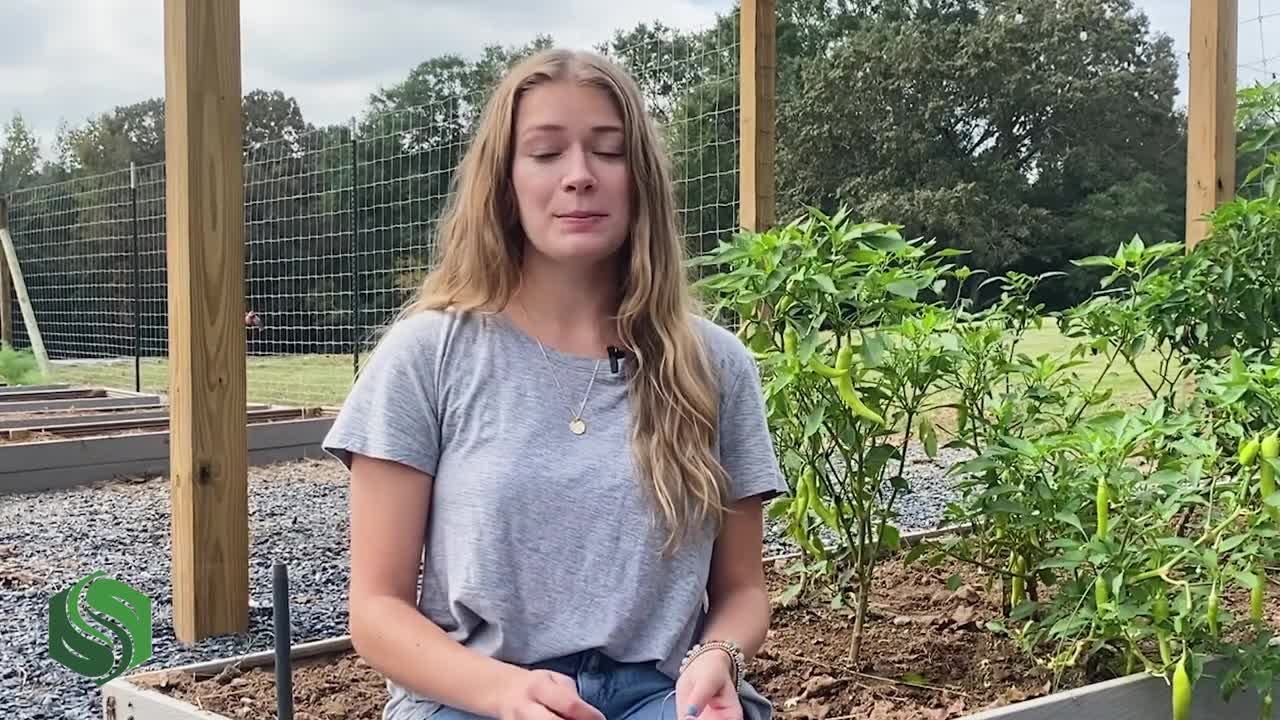Premium Only Content

Soil pH for Gardens- Alkaline or Acidic?
Right now, you may be planting your fall garden. You can pick the perfect plants for your location, have the perfect soil amendments to supplement plant growth and even the perfect, cute little planters… but what about the perfect pH? What is the pH of your soil, and should you pay attention to it? Do products like aluminum sulfate or agricultural lime really do anything for your garden soil?
Basically, soil pH is a measure of how acidic or alkaline your soil is. The pH scale ranges 1 to 14. If your soil has a pH value of less than 7, then you have acidic soil. On the other hand, if your soil has a pH value of greater than 7, then you have alkaline soil. A pH value of 7 is neutral, meaning you have neither acidic nor alkaline soil.
Soil properties greatly impact the type and amount of essential nutrients available to plant roots. Each plant has its own recommended soil pH value range. The reason for this is that soil pH affects the availability of nutrients within the soil, and plants have different nutrient needs. For example: The nutrient nitrogen, a very important plant nutrient, is readily available in soil when the pH value is above 5.5. Similarly, the nutrient phosphorus is available when the pH value is between 6 and 7. If a plant is placed into the wrong kind of soil, it will be lacking in nutrients that it needs, which will promote disease. In general, the best pH value range for soil is approximately 6 or 7. This is the range in which most nutrients can be readily available.
Finding out the pH of soil is usually easy, with soil test kits available at most good garden centers. Usually a pH soil test kit will include a small container or test tube, a testing solution and a color chart. A sample of soil is taken from your garden, placed into the test tube and a few drops of testing solution are added. The container is then shaken and left for a certain period of time. The color of the sample in the container is then compared against the color chart to determine the pH value of the soil. In most areas, you can take your sample to your County Extension agent for them to conduct a soil test, too.
You can neutralize soil acidity (increase its pH value) by adding a form of lime. Lime is a compound of calcium, or calcium and magnesium, otherwise known as calcium carbonate. It is usually applied in the form of ground agricultural lime, burnt lime or hydrated lime (slated lime). The smaller the limestone particles, like in finely pelletized lime, the quicker your soil will become more alkaline. For this reason, hydrated lime will offer the quickest performance if you want to raise the soil pH. It is slightly soluble in water, so it can permeate the soil quicker and reduce acidity faster.
Increasing your soil's pH is not an overnight process, and it is best to allow 2-3 months to allow the lime/calcium carbonate to neutralize the acidity of the soil.
Some ornamental plants and fruit plants like blueberries require an acidic soil. To increase soil acidity (decrease the pH value) you can use either ammonium sulfate or sulfur. Ammonium sulfate and ammonium nitrate are fertilizers, and with continued use they will increase acidity as they dissolve into the soil. You can buy aluminum sulfate for garden soil at most lawn and garden stores. The downsides are that their effects can be short term and it is possible to over-apply them.
The more recommended but slower way to increase your soil pH is to use sulfur. Elemental sulfur converts to sulfuric acid with the help of bacteria in the soil, but this takes time depending on factors like the presence of bacteria, texture of the soil and moisture levels. This could take months if conditions are not ideal.
You need to match up soil pH levels with the plants you are planning on growing for optimal plant health. Plants vary in what soil pH they prefer, so keep this in mind as you select plants. Conduct a soil test to accurately identify soil pH levels. You can select plants that prefer the pH level that occurs naturally in your soil, or you can take measures to alter the pH in your garden’s soil. Generally speaking, soil pH values of 6 to 7 work well because the main nutrients that most plants need can be made available in that range. Help your plants thrive in their soil by considering soil pH levels.
-
 28:54
28:54
Naiko Hydroponic
28 days agoINVENTIONS THAT WILL SOON CHANGE THE WORLD
5 -
 1:36:41
1:36:41
FreshandFit
3 hours agoWe Are QUITTING YouTube...
23.1K25 -
 2:34:22
2:34:22
TheSaltyCracker
3 hours agoDrug Smugglers Blown Up 9-03-25
56.3K109 -
 LIVE
LIVE
VapinGamers
2 hours ago $0.49 earnedGrim Trials - Game Review/Playthru - Rougelight Dungeon Crawler - !rumbot !music
79 watching -
 2:47:55
2:47:55
Mally_Mouse
9 hours ago🎮 Let's Play!! -- Jak 2 pt. 16
20.4K1 -
 52:23
52:23
MattMorseTV
4 hours ago $14.44 earned🔴The Cartels are SCREWED.🔴
89.6K108 -

Badlands Media
18 hours agoAltered State S3 Ep. 44
29.6K -
 21:09
21:09
Bearing
15 hours agoAustralian “Racist” Protest EXPLODES 💥 Glowies, Brawls & Media Spin 📣
13.9K26 -
 DVR
DVR
Tundra Tactical
3 hours ago $1.08 earnedTwo Vets, One Ouija Board, Zero Good Decisions
13.2K1 -
 3:49:59
3:49:59
Barry Cunningham
8 hours agoPAM BONDI & KRISTI NOEM HOST A PRESS CONFERENCE AND JOHN RICH JOINS THE SHOW!
37.6K30